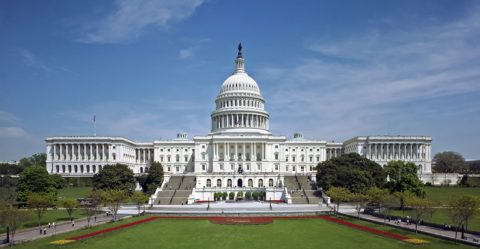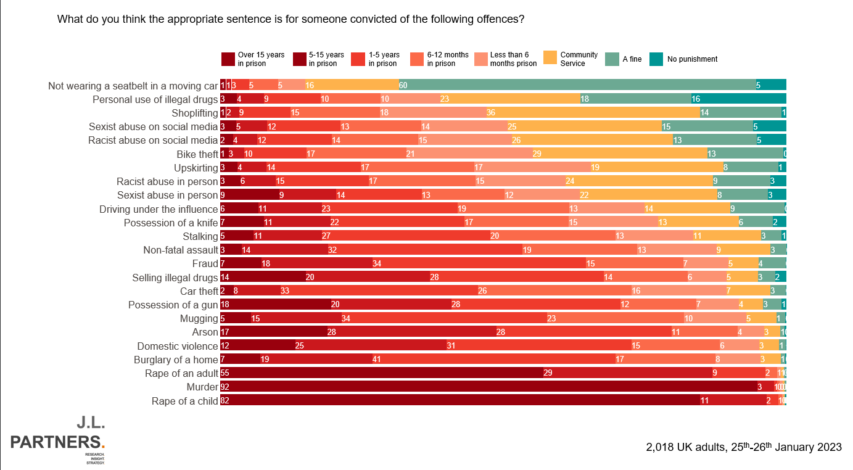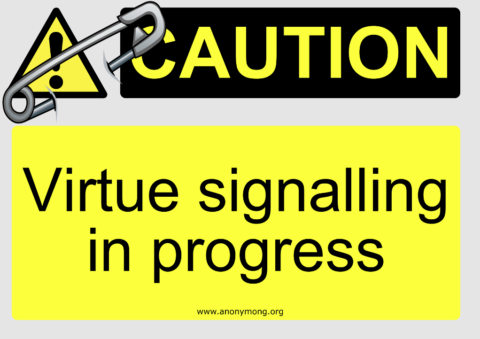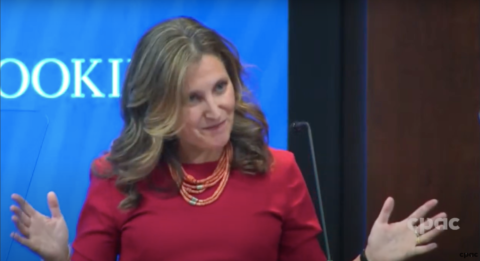The virtue-signalling lunatics of the various Extinction Rebellion sub-groups depend far more than they realize on the patience and tolerance of ordinary Britons who are just trying to get on with their daily lives. Wealthy, highly educated, privileged scions of the well-connected may very quickly learn that the well of tolerance they’re drawing from can run dry extremely quickly. Brendan O’Neill says even some of the movers and shakers of the donor class are starting realize the dangers their protest foot soldiers are running:
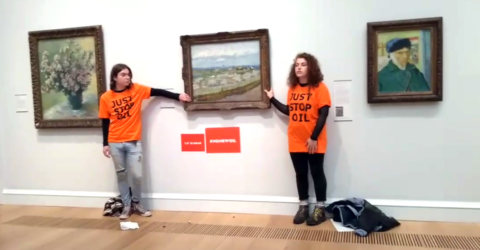
“Just Stop Oil Courtauld Gallery 30062022” by Just Stop Oil is licensed under CC BY-SA 4.0 .
So even one of Just Stop Oil’s wealthy donors is tiring of its classist stunts. Trevor Neilson, a co-founder of the Climate Emergency Fund, which has pumped money into Just Stop Oil, says the eco-irritants’ funereal, road-blocking marches for Mother Earth increasingly come off as “disruption for the sake of disruption“. You have “working people that are trying to get to their job, get their kid dropped off at school [and] survive a brutal cost-of-living crisis”, he says, and then along comes a “pink-haired, tattooed and pierced protester standing in front of their car”. It pisses people off, he said.
He’s not wrong. Anyone with eyes in their head can see that Just Stop Oil, and its mother movement Extinction Rebellion, is riling the workers of Britain. Imagine you’re trying to get to work to earn a crust in tough times and up pops a privately educated, possibly non-binary loon with multi-coloured hair to tell you in a voice breaking with juvenile emotion that Judgement Day is coming. The fainthearts of the liberal media are always aghast when an angry scaffolder or stressed trucker drags one of the green hysterics off the road, but I’m blown away by the restraint of the British public. People’s patience in the face of the daily elitist provocations of Just Stop Oil is nothing short of Herculean.
It is “counterproductive”, says Mr Neilson, to have pink-haired sons and daughters of privilege inconveniencing workers during a “brutal” economic downturn. Again, he’s not wrong. The class-war streak in eco-activism is undeniable. Many Extinction Rebellion types are descendants of money. Writer Harry Mount calls them “Econians”, a green twist on “Etonians”. They’re the “public-school boys and girls who rule the wokerati world”. A survey of 6,000 XR activists who brought London to a halt in April 2019 found they were “overwhelmingly middle-class [and] highly educated”. Anyone who walked through London that month will have heard “Cut carbon emissions!” being cried in cut-glass tones and understood right away that our great city was under siege by vengeful aristocrats still smarting from the Industrial Revolution.

